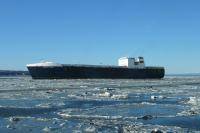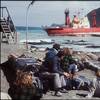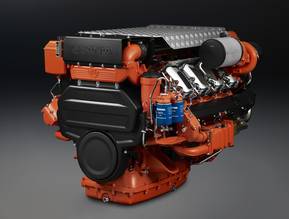ECA Compliance Waiver Granted to US Shipowner TOTE
EPA and USCG facilitate a move by Totem Ocean Trailer Express (TOTE) to convert its vessels to alternative fuels.
Totem Ocean Trailer Express (TOTE) has received a permit providing a conditional waiver from the current Emissions Control Area (ECA) fuel sulfur content requirements of MARPOL Annex VI regulation 14.4 while the company pursues conversion of its vessels to alternative fuels. The permit was issued by the United States Coast Guard (USCG) under authority provided in Regulation 3 of Annex VI.
This permit is the product of a public-private partnership among TOTE, the United States Environmental Protection Agency (EPA) and the USCG. It will enable TOTE to develop and convert its two ORCA-class vessels, already the “greenest” ships in the U.S. domestic fleet, to the use of Liquefied Natural Gas (LNG) as their primary fuel source. The conversion will advance technology and accelerate the use of natural gas as a cleaner domestic energy source.
“This is the first permit issued under the Annex VI, Regulation 3 program, and it is tangible evidence that when committed organizations join together, innovative solutions can result,” said Phil Morrell, Vice President of Marine and Terminal Operations at TOTE.
“When the Orca class vessels were delivered in 2003, they were purpose-built to serve the Alaska market and exceeded all regulatory and environmental standards. Post LNG conversion, the Orca vessels will again set a new standard for environmental responsibility. These changes will provide benefits to the residents of Alaska well into the 21st century,” said John Parrott, President of TOTE.
Totem Ocean Trailer Express (TOTE) is one of six operating companies owned by TOTE, Inc., a subsidiary of Saltchuk Resources of Seattle, WA. The privately-owned shipping company has operated roll-on/roll-off cargo vessels between the ports of Tacoma, Washington, and Anchorage, Alaska, since 1975.
The comprehensive project will also lead to the establishment of long-term supplies of LNG for use by other sectors of the transportation industry in the Puget Sound region.














